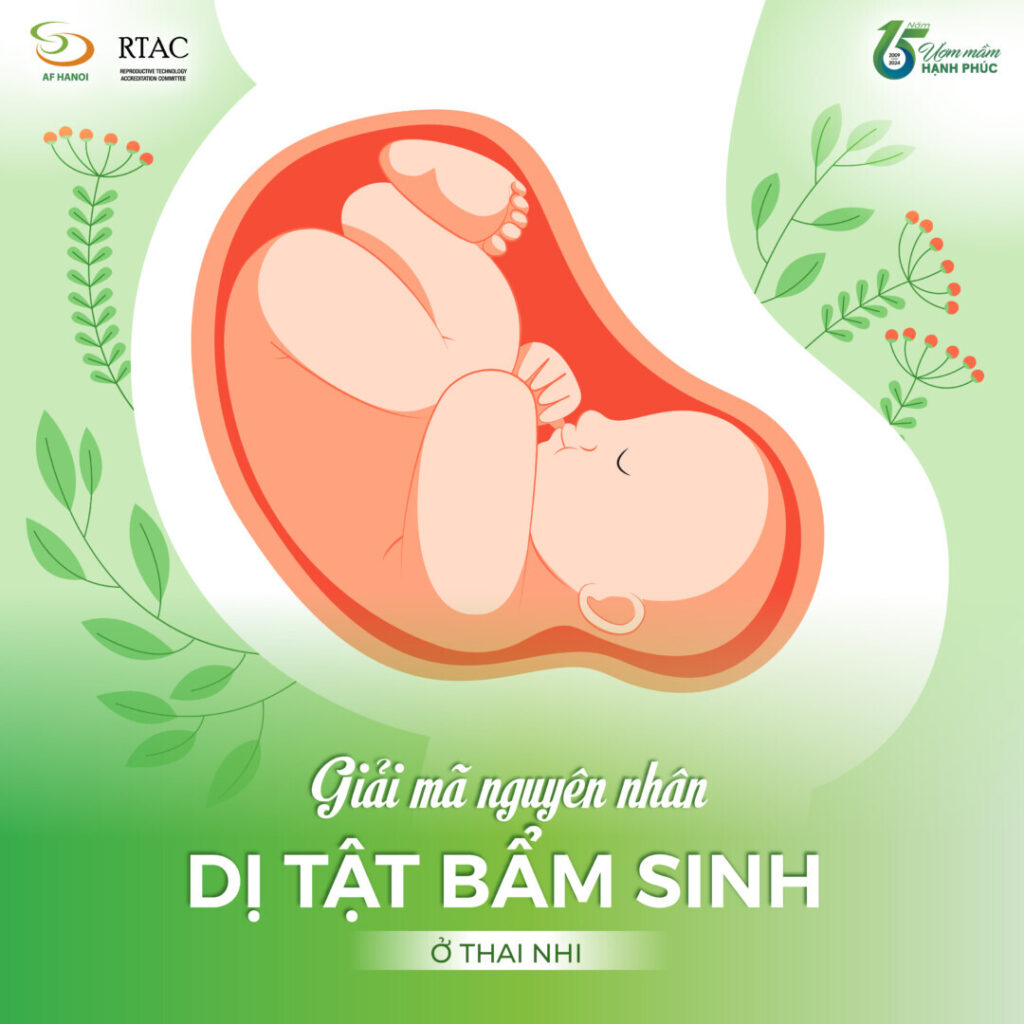
- Parental Age and Its Impact on the Fetus
- Women over the age of 35 and men over the age of 50 have a higher risk of giving birth to a child with congenital disabilities. This is due to the decline in the quality of eggs and sperm, which increases the likelihood of chromosomal division errors and gene mutations, leading to syndromes such as Down, Edwards, Patau, bone cartilage dysplasia, autism, etc.
- Research shows that children born to fathers over 40 years old are 6 times more likely to have autism, neurological disorders, or low IQ compared to those born to fathers under 30 years old. Meanwhile, mothers over 40 have a 10-12 times higher risk of giving birth to a child with Down syndrome compared to mothers under 30 years old.
- Genetic risks from Parents
- If either parent carries a genetic disorder or has a family history of congenital disabilities, the risk of passing on genetic abnormalities to the fetus increases. These conditions include:
- Genetic diseases such as thalassemia, hemophilia, or chromosomal abnormalities like Down syndrome, Turner syndrome, Klinefelter syndrome, etc.
- A history of miscarriage, stillbirth, or congenital abnormalities in the family may indicate that the parents carry genetic abnormalities that are not expressed.
- Infectious Diseases in the Mother
- Infectious diseases such as hepatitis, rubella, and the flu can affect the quality of the embryo, increasing the risk of birth defects. Pregnant women should receive vaccinations and avoid exposure to sources of infection before and during pregnancy.
- Exposure to Harmful Substances and Stimulants
- Pregnant women who are exposed to harmful substances such as alcohol, beer, tobacco, industrial chemicals, or radiation have a higher risk of:
- Causing congenital defects related to the heart, brain, or nervous system.
- Increasing the risk of miscarriage, stillbirth, or premature birth.
- Maternal Mental Health and Stress
- Ongoing stress and anxiety can negatively impact the development of the fetus:
- Stress during the first trimester increases the risk of cleft lip, cleft palate, or neurological abnormalities.
- Elevated cortisol levels due to maternal stress may disrupt the development of embryonic cells.
- Improper Use of Medication
- Self-medication or treating illnesses without a doctor’s prescription can seriously affect the fetus. Certain medications such as anticonvulsants and estrogen-containing drugs should be avoided at all costs.
- Other Factors
- X-ray Exposure During Pregnancy: X-rays can cause serious birth defects, especially during the first trimester. Pregnant women should inform their healthcare provider about their pregnancy status before undergoing any X-rays.
Unhealthy Habits: The use of chemical products such as hair dyes, nail polish, or perfumes containing toxic chemicals can affect fetal development.

